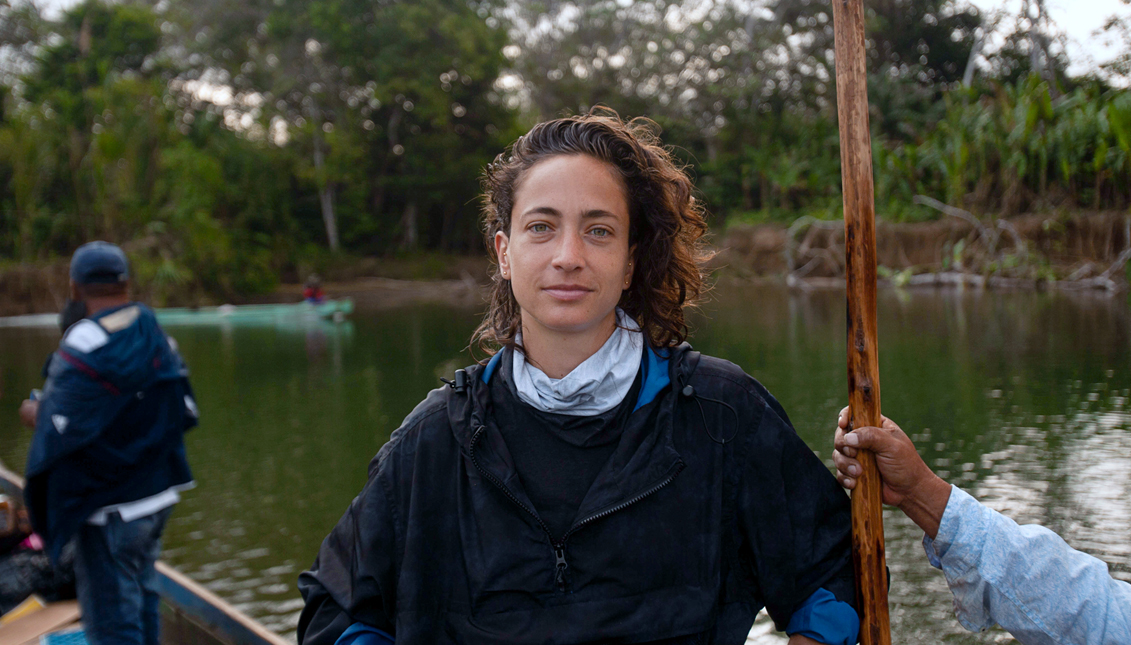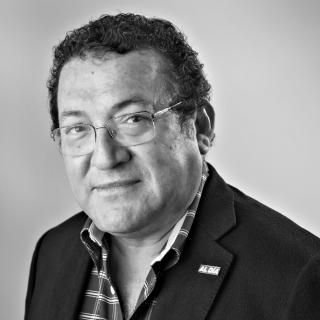
Jorge’s Daughter: Paola Ramos | OP-ED
A new generation of American journalists, homegrown, bilingual, and tough cultural-hybrid cookies, is here to renew the sagging vitality of U.S. journalism…
“De tal palo, tal astilla,” in Spanish, and “the apple doesn’t fall far away from the tree,” in English: both speak of an unbreakable bond between parents and their children.
But our brilliant children often are way better than us, the inadequate parents.
Reporter Beatriz Garcia’s front-page article in this week’s edition of AL DÍA made me think of both sayings and also brought to mind verses in a song by Joan Manuel Serrat, composer and singer from Cataluña, Spain, and world-wide known crafter of precious lyrics that speak of our often duff performance as parents of those “Locos Bajitos”— our little children, so well described in this Serrat's classic song.
These children who every morning “se incorporan con los ojos abiertos de par en par” (little ones who wake up each morning with eyes wide open).
It is the open, bleeding wound to the “immigration aorta” flowing tumultuously into the United States
Paola Ramos, one of these former “locos bajitos” (crazy little ones) in Jorge Ramos' family, traveled as young adult and professional journalist she is today to the Darién province, that wilderness of the American continent located in the jungles dividing Colombia and Panamá. It is the open, bleeding wound to the “immigration aorta” flowing tumultuously into the United States, extending thousands of miles from Río Atrato, near the Panamanian isthmus, to the Río Grande, on the Texas southern border. Ramos undertook this dangerous journey and improved on the legacy of journalist Jorge Ramos, her Dad, celebrity media personality, and Univision’s main news anchor.
When Jorge Ramos visited the AL DÍA Newsroom, he confessed to me in a recorded interview that he felt he was turning into a “dinosaur” in the news business, so much so, as he pointed out, that not even his children would watch his still popular Spanish-language newscasts, including perhaps his daughter Paola.
No wonder, Jorge!
Often our children “se nos parecen” (look like us) as Serrat says, and this gives us parents the great “first satisfaction”.
Yet we, inadequate parents we are, "sin saber el oficio y sin vocación" (with no calling for it and no idea of what job is all about), prove ourselves incompetent about sheltering them from inevitable and unavoidable pain and life suffering they must go through on their own to complete their growth into full adulthood.
Once there, they stand to correct us, set us right and also improve on our performance, Jorge, and that must be, in my view, our great “second satisfaction”.
Jorge’s daughter, Paola, a young journalist of Hispanic descent and author of the book "Finding Latinx" (Penguin Random House) is walking the walk, engaging in boots on the ground reporting few others dare tackle today because of the obvious extreme danger involved, and yet urgently needed as the subject of journalistic coverage the entire US society desperately needs to know and we all as a national community can’t ignore any longer.
RELATED CONTENT
It is the story of a continent in pain, crying out loud for fairness for its children, from Tijuana and Ciudad Juárez to the jungles of El Darién and all the way to the streets of the main capitals in Colombia.
It is the story of a continent in pain, crying out loud for political justice and economic fairness for its children, from Tijuana and Ciudad Juárez to the jungles of El Darién and all the way to the streets of the main capitals in Colombia — today, again, the theater of a bloody confrontation. The report brings together some pieces that reflect the excruciating reality of the Spanish-speaking America and delivers this via this narrative “The World’s Most Dangerous Jungle,” told by Ramos in her recent reporting for VICE.
“Full of serpents and scorpions,” Ramos says —as she narrates in the report— leading the viewer past decaying bodies, massacred by militias that prey on the river of desperate human beings escaping persecution, when not hounded by hunger, in a suicidal search for survival in a modern Joseph Conrad's “Heart of Darkness," yet to be fully documented by U.S. media.
They are Cubans, Haitians, Venezuelans, Brazilians, Colombians, Central Americans, as well as people from Bangladesh, in Asia, and Cameroon and Somalia, in Africa.
Thousands of families carry their children in their arms or on their shoulders, through these jungles, and across the rivers, and through the deserts, to hopefully make it, in that millennial aspiration of humanity, to “The Promised Land.”
And who is doing this urgent reporting?
“The young Latinx (bicultural and bilingual) journalists who want to return to their roots in a manner that our parents didn’t want,” Paola Ramos emphatically says in her interview with AL DÍA.
They stand to correct us and improve on our performance, Jorge, and that must be our great “second satisfaction”— I am telling you, myself the father of two smart, well educated and cantankerous daughters, the younger now on her way to the Graduate School of (you guessed right!) Journalism.











LEAVE A COMMENT:
Join the discussion! Leave a comment.